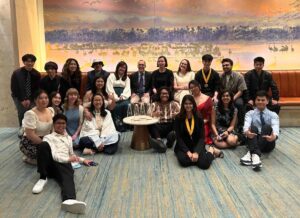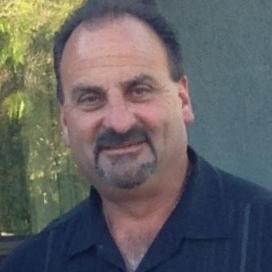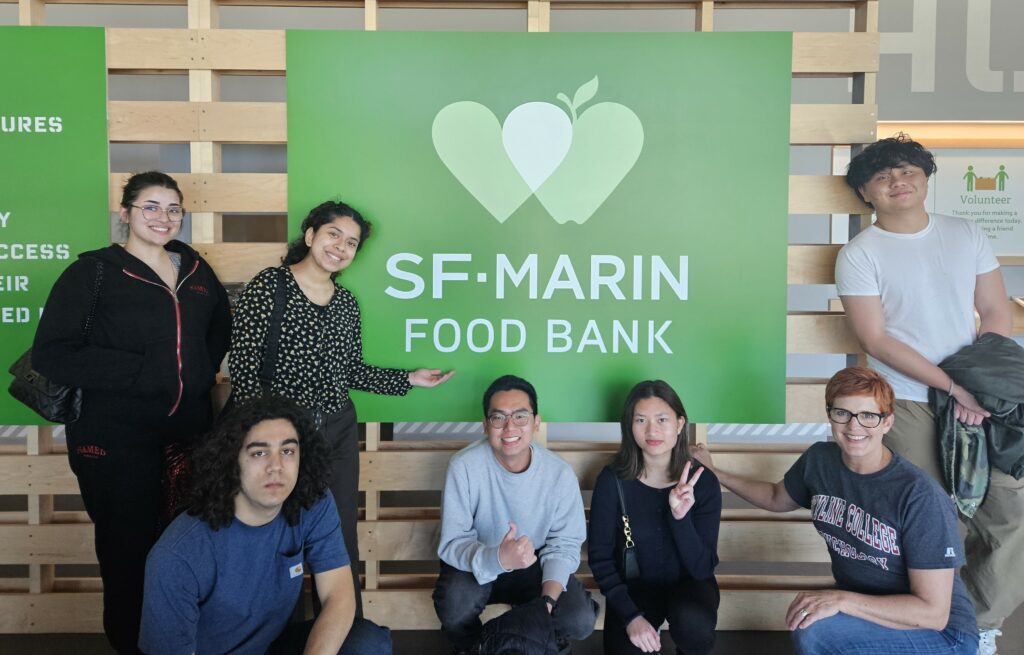 Tom Ammiano, former assemblyman from San Francisco and new instructor in Social Science at Skyline College, Tom Bauer, Vice Chancellor for Auxiliary Services for the SMCCCD, and Rosemary Bell, professor of history at Skyline College, presented a panel on some important issues facing the Lesbian, Gay, Bisexual and Transgender community. Each spoke about personal experiences as a member of this community, applied that experience to a broad social issue and suggested ways to meet the challenges.
Tom Ammiano, former assemblyman from San Francisco and new instructor in Social Science at Skyline College, Tom Bauer, Vice Chancellor for Auxiliary Services for the SMCCCD, and Rosemary Bell, professor of history at Skyline College, presented a panel on some important issues facing the Lesbian, Gay, Bisexual and Transgender community. Each spoke about personal experiences as a member of this community, applied that experience to a broad social issue and suggested ways to meet the challenges.
President Regina Stanback Stroud welcomed the panel and the audience, Professor of Chemistry A. J. Bates spoke about the contributions and interests of the campus Gay-Straight Alliance, and Donna Bestock, Dean of Social Science/Creative Arts introduced the panelists.
Tom Ammiano spoke about his own path to public office and the challenges that face an openly gay elected official. He credited Harvey Milk, with whom he was closely associated, with persuading him that a strong public voice would be both appropriate and effective—and it has been. His path includes nearly three decades as a teacher, civil rights leader, educator, Supervisor, and Assemblyman.
A native of New Jersey, Tom earned his B.A. from Seton Hall and his Master’s Degree in special education from San Francisco State University. He taught English to children in South Vietnam as part of a Quaker program until 1968, when he returned to San Francisco to become a public school teacher shortly after the Tet Offensive. He was the first openly gay public school teacher in San Francisco.
Tom was elected to the San Francisco School Board in 1990. In 1994, Tom won citywide election to the San Francisco Board of Supervisors. In 2000, after the institution of district elections, Tom was elected District 9 Supervisor, and he represented the Mission District, Bernal Heights and Portola neighborhoods. Tom was elected to the 13th Assembly District in 2008.
In the Assembly, Tom served has chair of the Assembly Public Safety Committee as well as chair of the LGBT Caucus. His influence was broad while in the assembly. In addition to his attention to LGBT issues, he made contributions to Proposition 13 loopholes, treatment of prisoners, homeless youth, immigrant rights and many other issues.
Tom is teaching Social Science 680SC Civil Rights: the LGBT Struggle for Equality this semester and will be teaching the course again in the fall.
Tom Bauer spoke about being born and raised in New York and growing up on Long Island which was a very conservative place in the 1970’s and 1980’s. As a young boy, Tom always knew he was different. He knew that he did not look at girls the way the rest of his friends did. He never spoke to anyone about his feelings and instead buried them deep inside and tried to fit in as best he could. In many ways he thinks society has come a long way since then. And yet the statistics on suicides by LGBT youth are alarming and much higher than for straight youth. Rejection by families, religious institutions and the community in general are still prevalent. This, he said, causes many LGBT youth to be self-loathing and to feel that they must hide who they are.
Tom considers himself very out, loud and proud. Tom sees one of his roles in the District as one where he is able to show people that gay people have much to contribute. Tom is particularly sensitive to the needs of young men and women who are struggling with their sexuality. By setting a positive example, Tom hopes to inspire those around him who are struggling to take the first step and talk with someone about their feelings. They will find as he himself found that being gay is nothing to be ashamed of or embarrassed about. He urges that we all provide the safe place where LGBT youth can come to the same positive attitude, accepting themselves as worthy human beings.
Rosemary Bell, often known as Rosie, spoke about recent legislation in states like Indiana and Arkansas that purported to protect religious freedom but would actually have permitted discrimination against members of the LGBT community. She cited historical precedents and the ways that they were challenged. She noted that this time the laws met with immediate public outcry, including from the Walton family who own Walmart, they persuaded the states that they need to modify these laws. Her own story parallels that of her co-panelists. She knew at a young age that she was attracted to women, but was terrified of admitting that since homosexuality was considered a mental illness until 1973. She was Brooklyn born and educated, and as she says, California liberated. She relocated to San Francisco in 1980 when the AIDS crisis was just beginning.
In 1985, Rosie took the Shanti Project training where she became an emotional and practical support person for people with AIDS. Rosie is not a “front of the march” activist. She prefers to work behind the scenes, particularly with youth who might be struggling with their sexual identity. Rosie founded the Gay-Straight Alliance at Skyline College in the early 2000s, after two gay students came to her voicing their concerns about homophobic slurs they heard in the Student Center. She and Carlos Colombetti worked hard to make the GSA successful and it is still a safe place for all students. She also led a project entitled “I Can’t Believe You Said That!” with Bridget Fischer and Lori Slicton to raise awareness on campus about verbally abusive language.
Article by Donna Bestock






